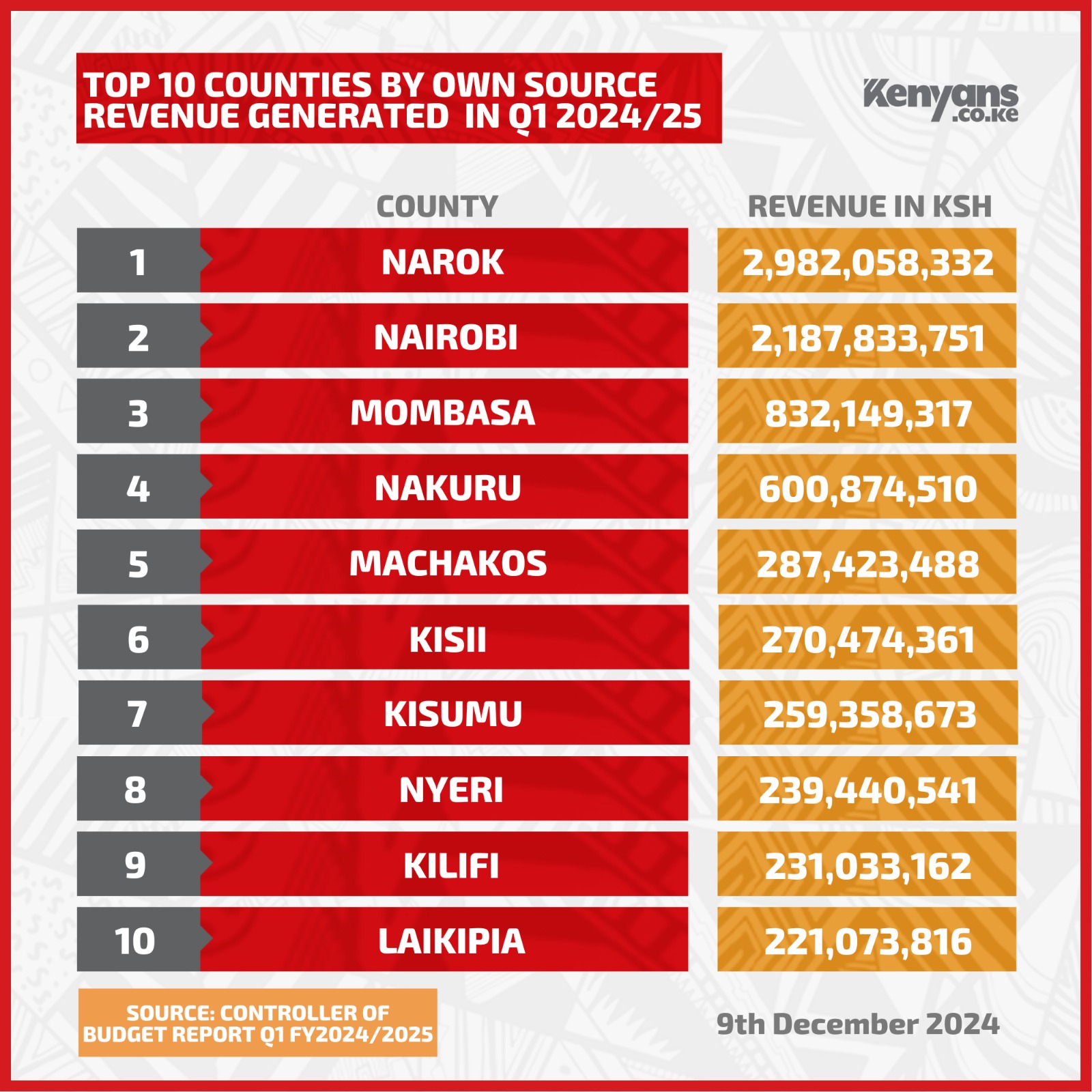Nairobi, the nation’s capital and economic hub, has been overtaken by Narok County in own-source revenue collection for Q1 of the 2024/25 fiscal year.
While Narok, under the leadership of Governor James Ole Lenku, posted an impressive KSH 2.98 billion in revenue, Nairobi managed KSH 2.18 billion — a glaring underperformance for a county of its size and resources.
Critics have laid the blame squarely at the feet of Nairobi Governor Johnson Sakaja, whose leadership style is increasingly being viewed as both misguided and incompetent.

Instead of focusing on tightening revenue collection systems and addressing the city’s glaring infrastructural and administrative challenges, Sakaja has consistently prioritized non-essential projects that have little impact on the county’s economic growth.
Revenue leaks, rampant corruption, and poorly monitored systems have become hallmarks of Sakaja’s administration. Insiders allege that some of these loopholes are deliberately engineered by Sakaja’s close allies, further enriching cartels while depriving the county of vital funds.

Nairobi Senator Edwin Sifuna and Johnson Sakaja. Photo: Johnson Sakaja Source: Facebooking and
From dubious licensing deals to inflated tenders, Nairobi’s revenue streams have become a feeding trough for unscrupulous individuals at the expense of its residents.
Meanwhile, Narok has demonstrated how strategic leadership can transform a county’s financial fortunes. By investing in tourism, agriculture, and robust revenue-monitoring systems, Governor Ole Lenku has proven that even a smaller county can outperform Nairobi.
Nairobi residents, long burdened by poor service delivery, traffic gridlocks, and ballooning debts, are demanding answers. Many are questioning why a county with such a vast economic base — from real estate to commerce — has been reduced to playing second fiddle to smaller counties.
The ball is now in Sakaja’s court, but unless immediate and drastic reforms are implemented, his administration risks cementing its legacy as one of the most inept in Nairobi’s history.



